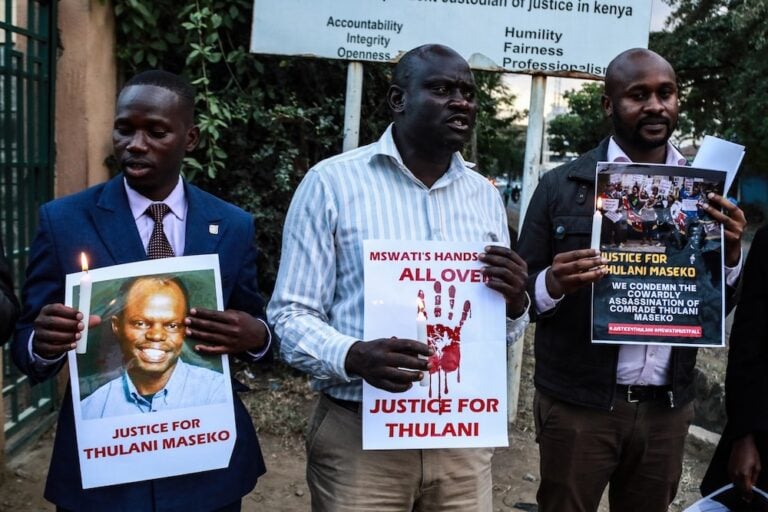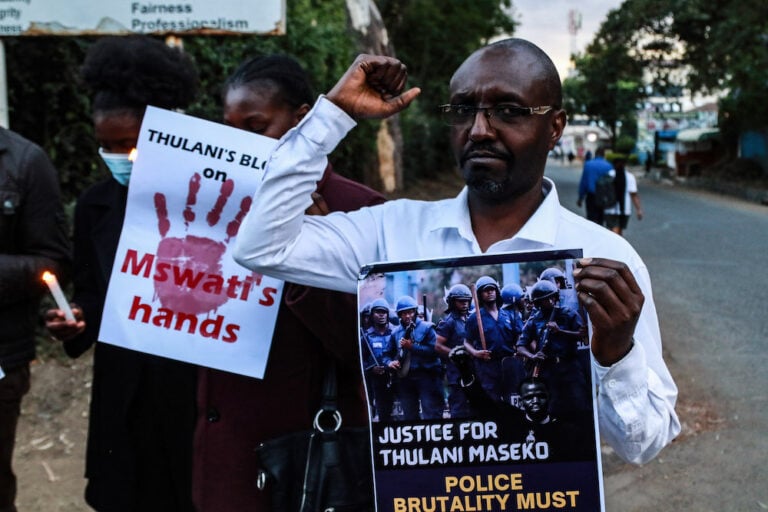(MISA/IFEX) – On 3 October 2002, the Swaziland Royal Police, acting on a court order, raided Channel S, the only privately-owned television station in the country, and confiscated a video tape containing a sermon that has been termed by the Swazi government as “threatening the foundations of the kingdom.” According to local sources, the footage […]
(MISA/IFEX) – On 3 October 2002, the Swaziland Royal Police, acting on a court order, raided Channel S, the only privately-owned television station in the country, and confiscated a video tape containing a sermon that has been termed by the Swazi government as “threatening the foundations of the kingdom.”
According to local sources, the footage was of a sermon broadcast nationally and regionally (throughout the Southern African Development Community, SADC) on 6 September. During the sermon, Pastor Justice Dlamini, of the Swaziland Association of Christian Ministries (SACM), suggested that some of the cultural practices in the country are “ungodly.” Dlamini was referring to the “Incwala”, an annual cultural celebration.
MISWA, MISA’s Swaziland chapter, condemned the raid on the television station, saying that
it was unwarranted and impinged on Swazi citizens’ freedom of expression. Moreover, MISWA reported that Dlamini has suffered harassment by policymakers in the country, ostensibly in the name of protecting culture and the monarchy.
MISWA further objected to the police action and noted that some of the officers who took part in the raid were themselves present at the said church service and had uttered no concern over the content of the sermon, until they received instructions to ransack the television station.
Background Information
The 6 September national prayer meeting was hosted by interdenominational ministries to celebrate Swaziland’s Independence Day. According to the 5 October edition of the “Times of Swaziland”, a national independent daily newspaper, the prayer was “organized to beseech God to forgive the Swazi nation of its sins.”
In Swaziland, the state is embodied in the person of the sovereign himself, King Mswati III, the 16th king from the House of Dlamini, which has ruled the Swazis since the 1500s. Swazis do not distinguish between the nation and the man, and while the king is not considered divine, he is the central figure of the month-long sacred “Incwala” (kingship/harvest) ceremonies, held when the first fruits ripen in summer.
During the “Incwala”, tens of thousands of Swazis in traditional attire converge on the Queen Mother’s village and petition the national ancestral spirits to endow the king with wisdom, and the nation with good rains and fortune.


